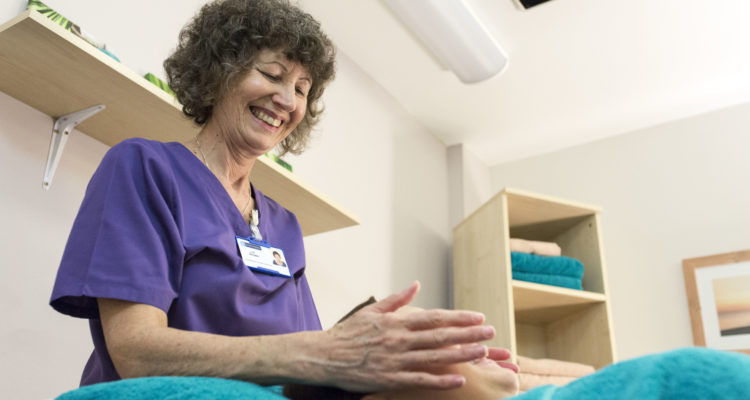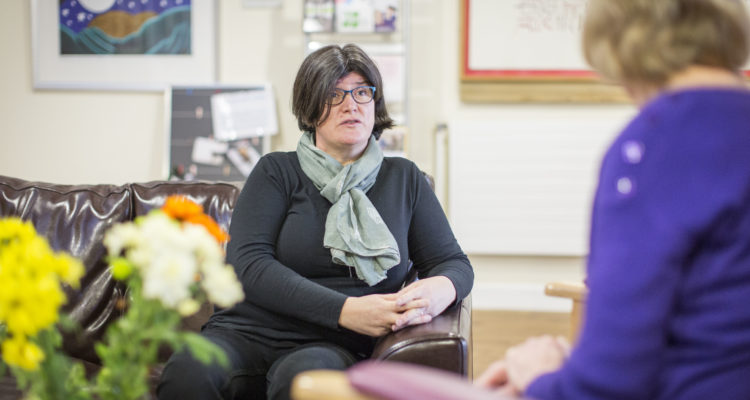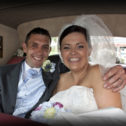How we care for carers

At St Ann’s we provide the best possible care for our patients, treating each person as an individual and aiming to meet the unique physical, emotional, social and spiritual needs of all those we care for – and that doesn’t just apply to our patients. We recognise that when someone is living with a life-limiting illness it’s a very difficult time for their carers too.
A carer can be anyone – a husband, wife, partner, family member, friend or neighbour. The needs of carers can sometimes be overlooked, but it’s not uncommon for them to experience similar levels of distress as the patient. But carers aren’t alone – we’re here to support them as well as the patient.
There are lots of different reasons a carer might need some support or guidance, ranging from physical to emotional to practical. Here, we look at some of the ways we can help.
Many carers are worried about money, and are perhaps having to work less or give up work to care for their loved one. They may be entitled to financial help with the costs of caring and, working alongside other agencies, we can help people find out what they’re entitled to and how to claim it.
As the needs of the patient change, carers may find that they struggle more to provide the support they need. There are many aids and adaptations which can help people stay in their
own homes for as long as possible. We offer advice on products that may help, and how to go about getting them.
The stress which is often felt by carers can show itself in many ways. Carers may experience a mixture of psychological and physical conditions such as anxiety, low mood, fatigue and many more. We can help. We provide a counselling service, which is one way that can help people make sense of what’s happening. Some people want to meet other people in the same situation as themselves, so we can provide information about local and national support groups. Carers are often worried about how the illness of a relative may be affecting children and young people in the family.
We can provide help and information for parents and carers in exploring how best to support children and young people.

When a loved one dies, it can often be a very difficult time for everyone who knows them. We can provide bereavement support to anyone who is connected to the patient who has died – whether that’s a friend, family member, carer or partner. We’ll help find the right support based on the individual needs of the person.
Many people find complementary therapies are really beneficial, helping to relieve stress and tension, promote feelings of wellbeing and aid relaxation. We offer Aromatherapy, Reflexology, Reiki and Indian Head Massage to our patients, but also to their carers.
Our Hospice @ Home team provides support for carers of patients in Salford and Trafford. Carers may be looking after the patient 24 hours a day, so the team stay with the patient whilst the carer has time for themselves, whether that’s to go shopping, meet friends, visit the hairdressers or even just have a bath or shower whilst knowing the patient is safe.
I can honestly say that an awful situation was made more bearable from the day my husband Gib became a patient at St Ann’s. The care, compassion and respect he received was fantastic. But it was the way they also looked after me, our daughters and the rest of our family that really surprised me. One thing that I’ll always be grateful for was the advice I received about talking to the children about their daddy dying. They encouraged me and gave me advice on how to explain things, and I couldn’t have done it without them. I’m so glad I did as it was much less of a shock when he passed away. Jennie

As a family we were so relieved when my wife Alison was at St Ann’s, as we realised it was such a special place and how much care and love everyone gave not only to Alison, but all the family. We could come and go as we pleased, even her dog, Ruby, was made welcome! Whether it was nurses, housekeepers, receptionists or volunteers she always spoke so highly of them and loved them all. Rick

